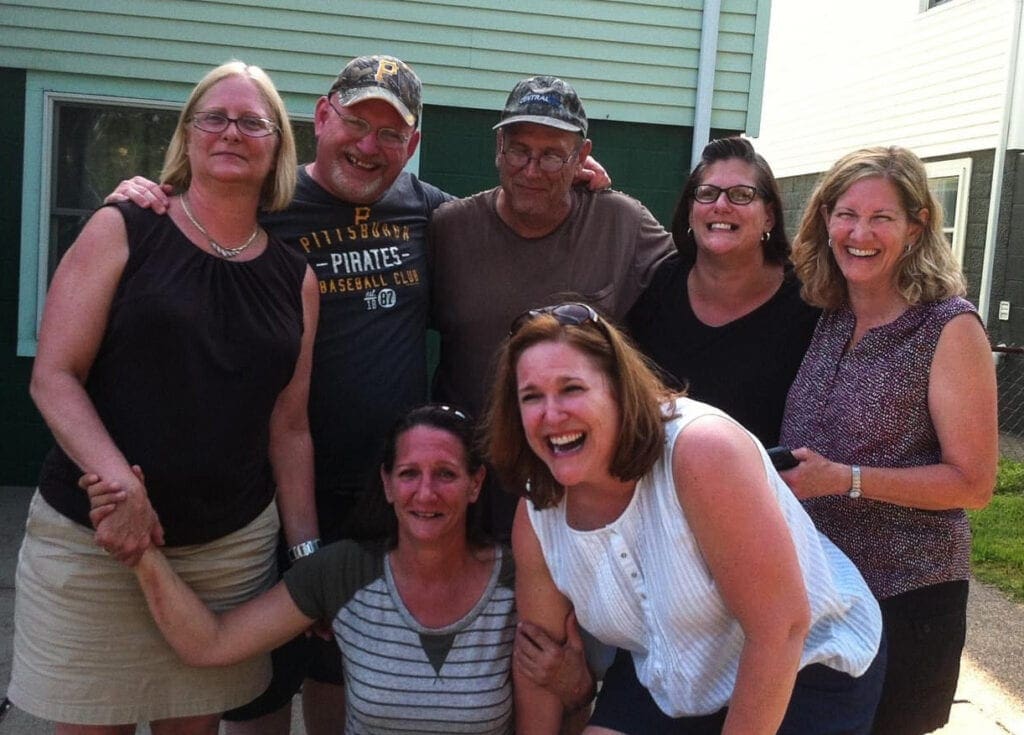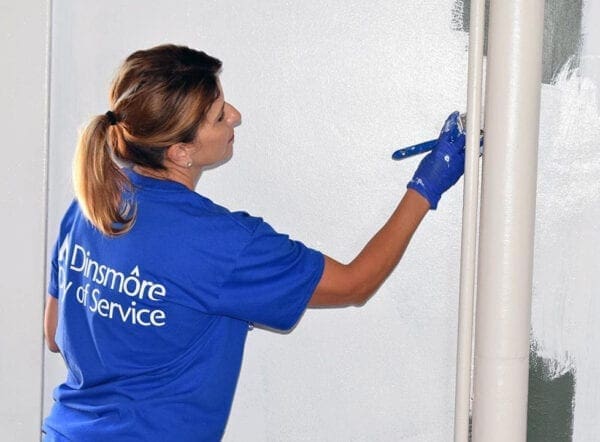The common cold has spread at times from resident to resident at the Wheeling YWCA’s location in downtown Wheeling, and even those situations have made for some miserable weeks inside the historical structure.
Enter Covid-19, a pandemic that has closed us down and shut us in since mid-March, and Executive Director Lori Jones has been very careful to follow mandated guidelines and then some. She doesn’t want it, and she certainly doesn’t wish to place a resident or staff member at one of the non-profit’s locations in any possible exposure scenario.
“Empowering Women – Eliminating Racism” is not only the slogan for the Wheeling YWCA, but it’s the mission statement, too, and the march toward those goals has continued despite the “new normal” and increasing numbers. All of the organization’s nine programs have been affected in some ways, but two of them have either closed or have been suspended.
It’s not been easy. It’s added hours upon hours of work. It’s the lost sleep. And it’s the that chance one infection leads to an in-house outbreak. The debate doesn’t matter because for so many it’s been about death.

What have been the biggest challenges since the pandemic impacted the operation of all Wheeling YWCA facilities through the Upper Ohio Valley?
Ensuring that we are staying within the CDC regulations and keeping everyone safe by weighing the safety of the clients and the staff. Knowing that the mental health of workers and residents is being taxed and not having any control of ensuring their mental health other than doubling up staff to ease pressure and offering outlets for the residents, at all locations, so they didn’t feel as if they were locked up and alone. Community style living is difficult under the best of circumstances and this has been the most pressure I have felt in my time at the YWCA. Opening up and then re-closing because we had too many COVID tests being done every day for a week, those things have presented challenges as well for residents and volunteers.
Then just making sure that we had all of the supplies (PPE and additional cleaning supplies) we needed when there were none available. There were staff members and clients who had contacts at stores who were helping us out on timing of deliveries. It was very tough at the beginning when making policies and ensuring they were being enforced by everyone.
How have you and your staff handled the “feeding factor” — making sure all residents have enough food to remain healthy?
We have been very blessed in making sure there was enough food. The Daily Bread Center (food pantry in Martins Ferry) was the first to step up to see if we had enough food; Lisa and Barry Allen were second, and then the Unitarian Universalist Church began ordering fresh fruit from Jebbia’s every week. We are fortunate to have a good relationship with Ohio County Schools, and some of their excesses started coming to us. We have always shopped for the basics, but we were not quite prepared for every adult and child to eat every meal with us. The first time that Laura Albertini Weigel and I shopped for the building, it took us over four hours, whereas before it may have taken about 30 minutes. Catholic Charities, 4th Street Methodist Church, and Belmont County Salvation Army all have been a great support.

Which of the programs operated by the Wheeling YWCA have been most affected by Covid-19?
There are two. The first is the Y-Not Repeat Boutique. Pre-COVID there were about 160 women either shopping at the Boutique weekly or being referred for free clothing. When we closed in March, we quit accepting donations, offered clothing by appointment only, and the volunteers went away. We had not yet put out all of the Spring clothes, we still had donations to sort and steam, and we had to prepare for end of year inventory. Some of the women who live at the YWCA need volunteer hours, so they set to work and changed the seasons from Winter to Summer, and we opened it up to residents and staff to shop as much as they needed. We were prepared when we opened up for two weeks in early July, but we had to close again for safety/health reasons. Again, although we were fortunate not to have any positive cases, we were spending a lot of time transporting people for tests. At this time, by appointment only we will get someone in need of clothes.
Y Fix It, LLC, our small home repairs business, has been closed but for a few jobs that were pending before we shut down. The women who worked for that program have been hired in other programs and are working but just not doing home repairs. We are planning some work on the building in the near future, and they will again pick up their hammers, but other than that, we have no immediate plans to reopen.
In the middle of this pandemic came the death of George Floyd in Minneapolis on May 25, and soon after came the #ChangeForA20 campaign. How popular has it proved to be, and what do you hope it provides communities in the Upper Ohio Valley?
The tragic unjust and unnecessary death of George Floyd over the false allegations of a counterfeit $20 has brought a lot of outrage to the structural racism that we, as Caucasians, look at complicity every day (sometimes because of ignorance and sometimes because it’s easier to turn a blind eye) and that people of color are forced to deal with because “that is just the way it is.”
The immediate local response was what can we do, and that prompted the videos that were created, and that just didn’t seem like enough and that prompted the #Changefora20 campaign. We’ve had a great deal of local support for the campaign, and community members and businesses alike have supported it. It gives me hope for the future equality of all people.
Eliminating Racism has been part of the mission of the local YWCA for 114 years. One of the hardest parts of our jobs is changing mindsets through education, and Ron Scott Jr. does a wonderful job of educating with humor and doing focused presentations to make us all think.
The videos on our website: YWCAWheeling.org or on our Facebook page have hundreds of thousands of views, and we’ve had hundreds of people donate to the #Changefora20 campaign supporting our efforts to make life equitable for all people, through more educational opportunities and/or scholarships through OVAASA.

How has life changed for you and your husband since mid-March?
Doctors and hospitals have bothered me; my mother-in-law lives with us and ended up in the hospital with congestive heart failure for a few days, and we were unable to visit. My husband had surgery, and I was unable to be there. Drop off and pick up only.
I have a niece who just went home this week after being in the hospital for over eight weeks with a very rare type of cancer, and we were unable to visit her. It is the family support events that have bothered me the most. My husband and I are homebodies, so the restrictions have not really impacted us a whole lot daily.
Our family life changed a bit because in March I started taking Tuesdays off and working on Saturdays as the needs of the Organization changed, and they haven’t gone back to Monday through Friday yet. My husband works the traditional work week, so we value our Sundays together.

